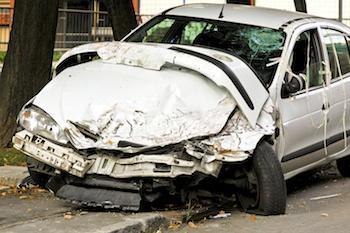 Traffic accidents can be confusing and stressful. Accidents impose many tangible costs on those involved, such as medical bills and repair costs. Additionally, they require the parties to the accident to deal with legal structures with which they may not be familiar, such as giving statements to the police and entering into settlement negotiations with insurance companies. However, there are over 100,000 traffic accidents in Connecticut every year, according to a report by the Connecticut Department of Transportation, so it is important for people to know what to avoid saying after a traffic accident in the event that a wreck takes place.
Traffic accidents can be confusing and stressful. Accidents impose many tangible costs on those involved, such as medical bills and repair costs. Additionally, they require the parties to the accident to deal with legal structures with which they may not be familiar, such as giving statements to the police and entering into settlement negotiations with insurance companies. However, there are over 100,000 traffic accidents in Connecticut every year, according to a report by the Connecticut Department of Transportation, so it is important for people to know what to avoid saying after a traffic accident in the event that a wreck takes place.
Talking to Police
Immediately after the accident the police will likely seek statements from both of the parties to the accidents as well as possible witnesses nearby. People involved in an accident need to know what to avoid saying when asked for this statement. One of the most important things to avoid is lying. Statements to the police are only one of many pieces of evidence available. If other evidence contradicts a false statement to the police, then that can damage the plaintiff's credibility with the court.
However, there is a difference between lying and providing more information than is possible. Another major mistake people make at the scene is saying that they are not injured. Serious injuries related to traffic accidents may not appear until days or weeks after the accident, so people cannot accurately determine whether they are injured immediately afterward. Similarly people often say that they were at fault for the accident, or they choose to apologize at the scene. This is a mistake because people cannot know who was at fault just after the accident. Figuring out who is at fault is a legal determination that the court will make, and is not a determination made by the parties to the crash.
These statements can be problematic at trial, if the plaintiff has to testify. For instance, if the plaintiff needs to discuss their injuries, then the defense attorney can bring out the statement that they were not injured at the scene in order to show that they are making contradictory statements, a process known as impeaching a witness.
Dealing with Insurance Companies
Plaintiffs also need to be careful when talking to the insurance company. In addition to the above rules, plaintiffs must ensure that they do not lose their claims. Connecticut law allows people to settle their legal claims at nearly any time. Insurance companies who realize plaintiffs have strong claims may call quickly in an effort to extract a cheap settlement from the plaintiff before they have a chance to consult an attorney.
If someone from the other person’s insurance company contacts you to try to settle with you, do not do it. First, a call like that is clearly an indication that they are aware that their insured is at fault and want to settle as quickly and as cheaply as possible before you speak with an attorney. Second and just as importantly, they will ask you about your version of the accident—which is usually recorded—and any slight deviation from what you may have said or not said to the police can have a serious negative impact upon your attorney's ability to resolve your matter.
Acting Quickly
Finally, it is imperative that you act quickly in order to file a civil lawsuit to collect compensation. The statute of limitations in Connecticut is much shorter than in many other states; as such, those injured in accidents have only two years in which to file suit. Injured parties should contact a personal injury attorney well before this time has expired.
Dealing with courts, police, and insurance companies can be a stressful and unfamiliar experience. Fortunately, accident victims do not have to do it alone. If you have been injured in a traffic accident, contact a Hartford personal injury attorney at Woolf & Ross Law Firm, LLC today to learn more about your options.
 50 Founders Plaza
50 Founders Plaza

